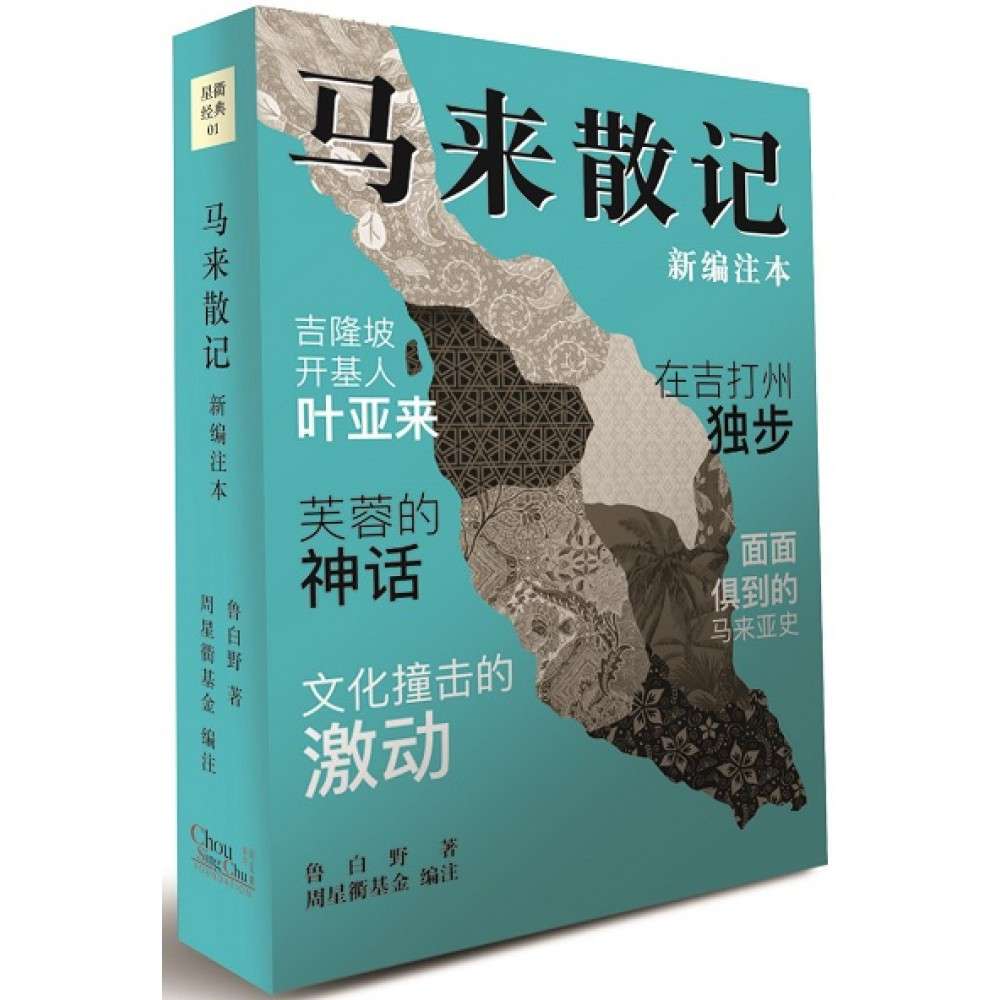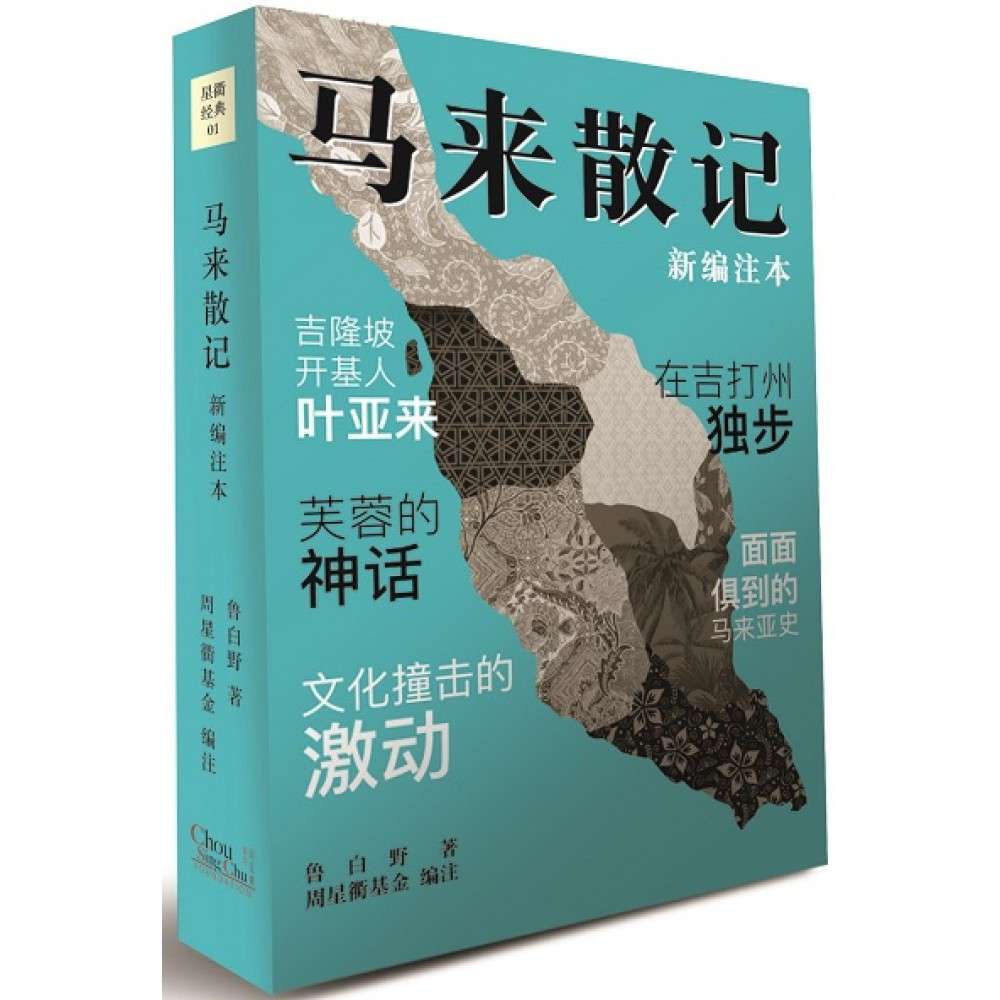Malay Essays (Newly Edited and Annotated Edition)
Malay Essays (Newly Edited and Annotated Edition)
2 in stock
Couldn't load pickup availability
ISBN/EAN: 9789811409011
出版日期: 2019-05-25
页数: 374页
语言: Simplified Chinese
A learned scholar who died at the age of 38, a literary gem that must remain unsung. Follow the Singaporean and Malaysian writer Lu Baiye (1923-1961) through 56 classic essays and embark on a fascinating journey through Malayan literature and history.
The classic collections of essays by Singaporean and Malaysian poet, writer, editor, translator, and Malay language expert, Ru Baiye (1923-1961), "Malay Notes" and "Malay Notes: Sequel," were first published by World Books in Singapore in October 1954. These collections include 56 essays and a preface by Ru Baiye, who grew up in Ipoh, Perak, Malaya, fled to Indonesia during World War II, and later settled in Singapore. Using the form of "notes," Ru Baiye presents Malayan literature and history in a poetic style, covering the cultures of various ethnic groups, legal systems, cultural relics, notable figures, historical events, and local customs. Using a literary style and quoting from classic sources, the author recounts a wide range of aspects of Malaya, offering readers a comprehensive and detailed understanding of Malayan society and its development, while remaining both intellectually and entertainingly engaging.
The editors of this book (Chou Sing Chu Foundation) have reorganized and merged the contents of the two books into a single publication, "Malay Notes (Newly Edited and Annotated Edition)." The original traditional Chinese version has been switched to simplified Chinese, and the book is divided into six volumes by theme: "Historical Stories," "Local Chronicles," "Characters," "Scenery," "Anecdotes," and "Literature." Nearly 140,000 words of annotations have been added to provide background information, allowing contemporary Chinese readers 65 years later to read the book without hindrance, transcending the barriers of time, space, and language. Furthermore, the book includes a preface by the new editor, a general preface by Professor Wang Runhua, a scholar of Singaporean and Malaysian literature, introductions to each volume, a chronology of Lu Baiye's chronicles, a map and place name comparison table, and new illustrations for each article. This rich and informative work is a must-see for readers interested in Malaysian history and the development of humanities in Southeast Asia.
Lu Baiye (1923-1961)
Born in Ipoh, Perak, Malaya, he is a poet, writer, editor, translator, and Malay language expert. His real name is Li Xuemin, and he also uses the pen names Li Hua and Li Fumin, as well as Weibei Hua, Lou Wenmu, Yue Zigeng, Hua Xiding, Pobing, Fan Tao, Yao Yuan, and Yu Qiang. He attended Ipoh Yucai School but dropped out in fifth grade. During the Japanese occupation, he lived in exile in Medan and Jakarta, Indonesia, before settling and working in Singapore. He served as the international edition's telegraph editor, the founding editor-in-chief of Sin Chew Daily's Malay supplement, "National Language Weekly," and the magazine "Majallah Bahasa Kebangsaan," among other positions. He also worked as a court reporter and interpreter for newspapers such as Yishibao and The Malaya Tribune.
He wrote prolifically, primarily in the 1950s. His works include the cultural essay collections "Lion City Notes," "Malay Notes," and "Malay Notes Sequel"; the travelogue "Impressions of India"; the short story collection "Meteor"; the essay collection "Spring Ploughing"; the collection of novels, essays, and poetry "Walking Before Dawn"; the edited "Love Poetry"; the reference work "Malaya"; the educational work "National Language Textbook"; the compilation of "Practical Malay-Chinese-English Dictionary"; and the compilation of "Pantun: Poetry of the Malay People." He died suddenly in Singapore at the age of 38 from high blood pressure and heart disease. Professor Wang Runhua, a renowned scholar of Singaporean and Malaysian literature, hailed him as a "genius poet who died young."
Share


